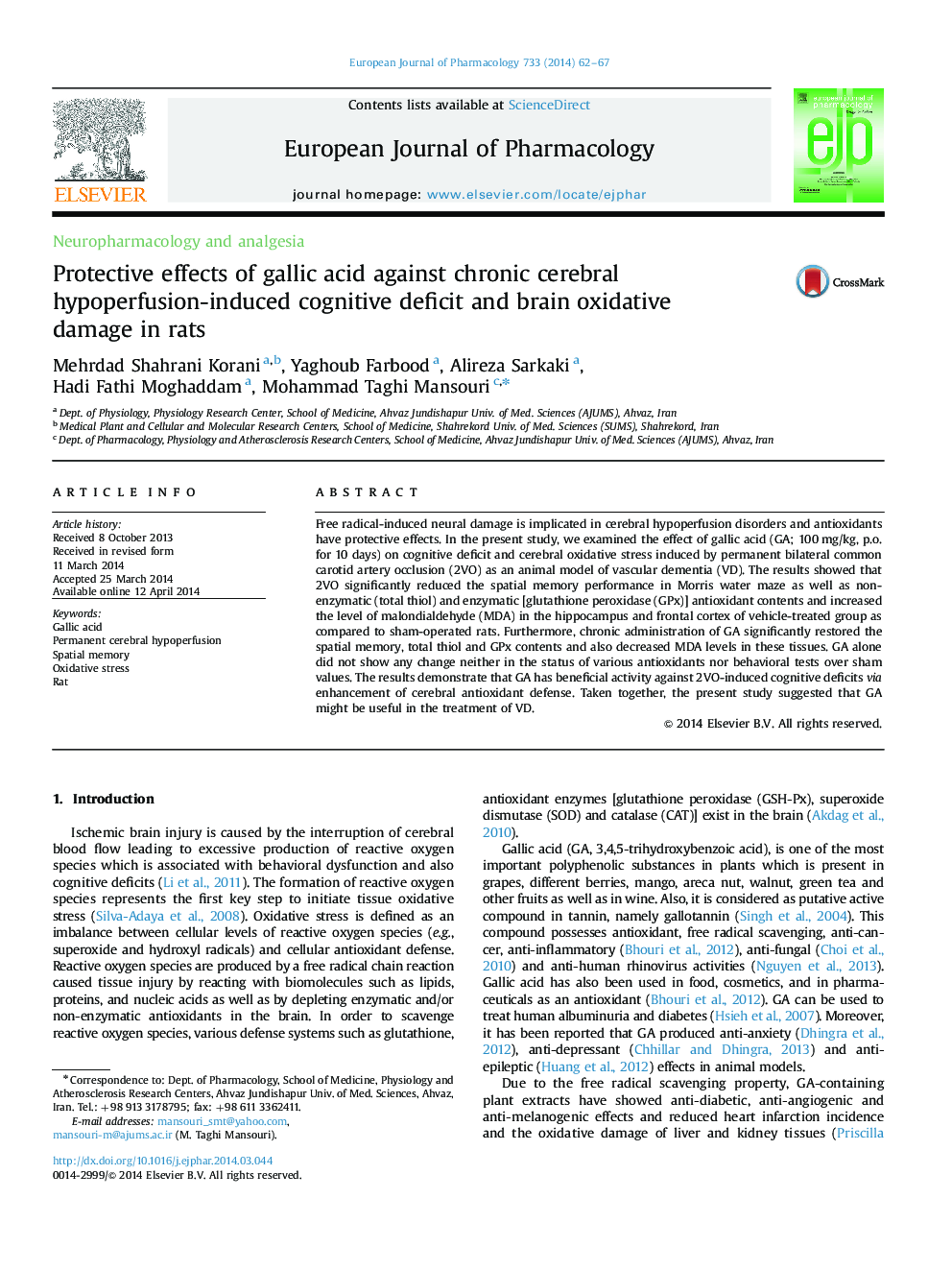| Article ID | Journal | Published Year | Pages | File Type |
|---|---|---|---|---|
| 5828043 | European Journal of Pharmacology | 2014 | 6 Pages |
Abstract
Free radical-induced neural damage is implicated in cerebral hypoperfusion disorders and antioxidants have protective effects. In the present study, we examined the effect of gallic acid (GA; 100Â mg/kg, p.o. for 10 days) on cognitive deficit and cerebral oxidative stress induced by permanent bilateral common carotid artery occlusion (2VO) as an animal model of vascular dementia (VD). The results showed that 2VO significantly reduced the spatial memory performance in Morris water maze as well as non-enzymatic (total thiol) and enzymatic [glutathione peroxidase (GPx)] antioxidant contents and increased the level of malondialdehyde (MDA) in the hippocampus and frontal cortex of vehicle-treated group as compared to sham-operated rats. Furthermore, chronic administration of GA significantly restored the spatial memory, total thiol and GPx contents and also decreased MDA levels in these tissues. GA alone did not show any change neither in the status of various antioxidants nor behavioral tests over sham values. The results demonstrate that GA has beneficial activity against 2VO-induced cognitive deficits via enhancement of cerebral antioxidant defense. Taken together, the present study suggested that GA might be useful in the treatment of VD.
Related Topics
Life Sciences
Neuroscience
Cellular and Molecular Neuroscience
Authors
Mehrdad Shahrani Korani, Yaghoub Farbood, Alireza Sarkaki, Hadi Fathi Moghaddam, Mohammad Taghi Mansouri,
